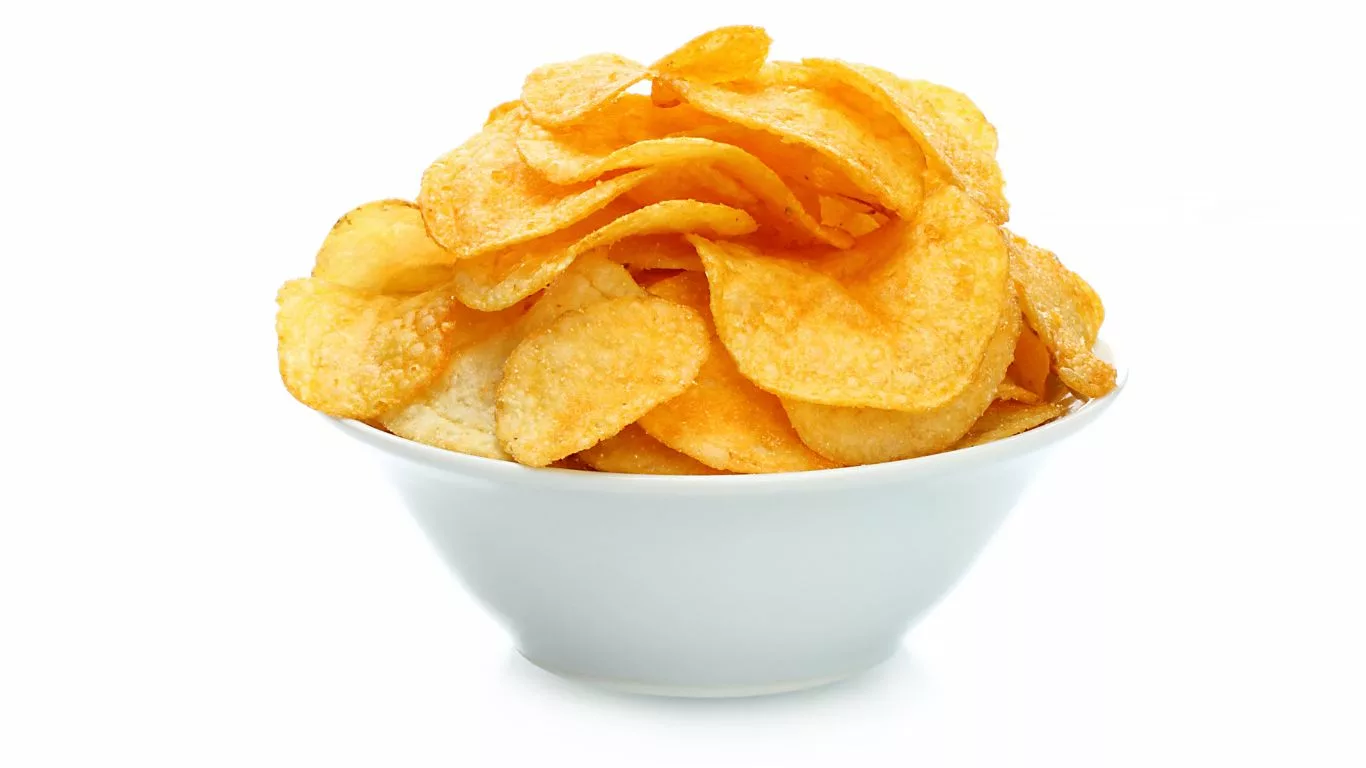Can Potatoes Help with GERD? – A Comprehensive Guide
If you suffer from GERD (Gastroesophageal Reflux Disease), you know how tricky it can be to figure out what foods are safe and which ones might make your symptoms worse. You’ve probably heard that some foods, like spicy dishes or citrus, can trigger heartburn and discomfort. But what about potatoes? Can they actually help with GERD, or should you avoid them? In this guide, we’ll take a deep dive into how potatoes can affect GERD and whether they should be part of your diet.
What is GERD?
 GERD is a chronic digestive condition where stomach acid or bile irritates the food pipe (esophagus). It happens when the lower esophageal sphincter (LES), a muscle at the bottom of the esophagus, weakens or relaxes inappropriately, allowing stomach acids to flow back into the esophagus. This backflow, called acid reflux, can lead to symptoms like heartburn, regurgitation, chest pain, difficulty swallowing, and more. Managing GERD involves dietary changes, lifestyle modifications, and sometimes medication.
GERD is a chronic digestive condition where stomach acid or bile irritates the food pipe (esophagus). It happens when the lower esophageal sphincter (LES), a muscle at the bottom of the esophagus, weakens or relaxes inappropriately, allowing stomach acids to flow back into the esophagus. This backflow, called acid reflux, can lead to symptoms like heartburn, regurgitation, chest pain, difficulty swallowing, and more. Managing GERD involves dietary changes, lifestyle modifications, and sometimes medication.
Can Potatoes Help with GERD?
 Yes! Potatoes can actually be a good food choice for people with GERD. They’re considered an alkaline food, meaning they can help neutralize stomach acid and prevent irritation to the esophagus. Since GERD is primarily about acid reflux and irritation, eating foods that are less likely to trigger acid production is key, and potatoes fit that bill. However, there are a few things to keep in mind to make sure you’re getting the most benefit from potatoes while managing your GERD.
Yes! Potatoes can actually be a good food choice for people with GERD. They’re considered an alkaline food, meaning they can help neutralize stomach acid and prevent irritation to the esophagus. Since GERD is primarily about acid reflux and irritation, eating foods that are less likely to trigger acid production is key, and potatoes fit that bill. However, there are a few things to keep in mind to make sure you’re getting the most benefit from potatoes while managing your GERD.
Why Potatoes Can Be Beneficial for GERD

1. Alkaline Nature
Potatoes, especially when they’re boiled or baked without added fats or seasonings, are alkaline in nature. This means they can help balance the acidity in your stomach. A balanced pH in the stomach helps minimize the risk of acid reflux and heartburn. Foods that are alkaline can soothe the digestive tract and reduce irritation.
2. Rich in Fiber
Potatoes are a good source of fiber, particularly in the skin. Fiber helps promote healthy digestion and can prevent constipation, which is an important part of managing GERD. Constipation can worsen GERD symptoms, so getting enough fiber is key. The fiber in potatoes also supports overall gut health and helps regulate bowel movements.
3. Simple and Easy to Digest
When cooked simply, potatoes are easy to digest. This is crucial for GERD sufferers, as foods that are hard to digest can increase the likelihood of acid reflux. Unlike fatty or fried foods that can linger in the stomach and cause discomfort, potatoes are gentle on the digestive system.
4. No Fat or Oil
Plain potatoes, whether mashed, boiled, or baked, are naturally low in fat. Since fatty foods can relax the LES and promote acid reflux, potatoes are a safer bet when it comes to GERD-friendly eating.
Best Ways to Prepare Potatoes for GERD
 While potatoes are generally safe for GERD sufferers, how you prepare them matters. Certain cooking methods can make a big difference in whether or not they trigger symptoms. Here are some GERD-friendly ways to prepare potatoes:
While potatoes are generally safe for GERD sufferers, how you prepare them matters. Certain cooking methods can make a big difference in whether or not they trigger symptoms. Here are some GERD-friendly ways to prepare potatoes:
1. Boiled Potatoes
Boiled potatoes are one of the best ways to prepare them for GERD. They’re simple, soft, and easy to digest. Avoid adding butter, sour cream, or spicy seasonings, as these can irritate the stomach and exacerbate GERD symptoms.
2. Baked Potatoes (Plain)
Baked potatoes can also be a great option, as long as you keep it simple. Skip the butter and cheese, and instead try a light drizzle of olive oil if you need some extra flavor. You can add a pinch of salt or herbs like rosemary for a mild, GERD-friendly twist.
3. Mashed Potatoes (Without Dairy)
Mashed potatoes are another good option, but make sure to leave out dairy, cream, or heavy butter. Instead, you can use a small amount of olive oil or vegetable broth to make them creamy without adding fat or irritants. Keep the seasoning mild to avoid triggering reflux.
What Potatoes to Avoid with GERD
Although potatoes can be beneficial, the way you cook and season them makes a big difference. Here are some potato preparations that you might want to avoid if you’re dealing with GERD:
1. Fried Potatoes
Fried potatoes, like French fries or potato chips, are high in fat, which can trigger acid reflux. The oils used in frying relax the LES, making it easier for stomach acid to flow back into the esophagus.
2. Loaded Baked Potatoes
Loaded baked potatoes with sour cream, butter, cheese, and bacon might taste great, but they’re high in fat and can irritate the stomach. These rich toppings can also increase the likelihood of heartburn, so it’s best to avoid them.
3. Potatoes with Spicy Seasonings
Spicy ingredients like chili powder, hot sauce, or garlic can be harsh on your stomach, especially if you have GERD. These spices can increase stomach acid production and worsen reflux symptoms. Stick with milder seasonings for the best results.
Other GERD-Friendly Foods to Pair with Potatoes
To make your meal even more GERD-friendly, consider pairing potatoes with other foods that are gentle on your digestive system. Here are some great choices:
1. Lean Proteins
Lean meats like chicken or turkey, or plant-based proteins like tofu, are great companions to potatoes. These proteins are easy to digest and won’t contribute to acid reflux.
2. Non-Acidic Vegetables
Vegetables like carrots, spinach, and zucchini are great choices for GERD. They’re gentle on the stomach and help balance the acidity of other foods.
3. Whole Grains
Whole grains like oats, brown rice, and quinoa are high in fiber and can complement potatoes in a balanced meal. These grains help with digestion and keep your stomach feeling calm.
Conclusion
So, can potatoes help with GERD? Absolutely! Potatoes, when prepared in the right way, can be a soothing, fiber-rich, and alkaline food that may even help reduce GERD symptoms. Stick to simple preparations like boiled, baked, or mashed potatoes (without dairy), and avoid fried or heavily seasoned versions to get the most benefit. As always, listen to your body, and if you have any doubts, consult a healthcare professional to make sure your diet works for you.
Appendices
FAQs
- Can I eat fried potatoes if I have GERD? Fried potatoes should be avoided with GERD because the high fat content can relax the LES and increase acid reflux.
- Are mashed potatoes good for GERD? Yes, mashed potatoes can be a good option if made without dairy and heavy butter. Use olive oil or broth instead for a smoother, GERD-friendly option.
- Can I eat potatoes with GERD every day? Yes, potatoes can be part of a GERD-friendly diet as long as they’re prepared in a mild, low-fat way. Moderation is key.
- Are sweet potatoes better than regular potatoes for GERD? Sweet potatoes are also a great option for GERD. They’re mild, fiber-rich, and less likely to cause reflux.
- What other foods should I avoid with GERD? Avoid spicy, fatty, and acidic foods, including citrus, tomatoes, garlic, and fried dishes, as they can worsen GERD symptoms.
References
For further information on managing GERD and foods to eat or avoid, here are some helpful resources:
- American Gastroenterological Association (AGA). (2023). Managing GERD: A Guide to Diet and Lifestyle. Read Article
- Smith, T., & Lee, J. (2022). Foods That Trigger GERD: A Comprehensive Review. Journal of Gastrointestinal Health, 45(4), 100-110. Read Article
- National Institute of Diabetes and Digestive and Kidney Diseases (NIDDK). (2023). Tips for Living with GERD. Read Article
Disclaimer
Disclaimer: The information provided in this article is for educational purposes only and is not intended as medical advice. Always consult with a healthcare provider for personalized recommendations regarding your GERD symptoms and diet. Individual

Tarra Nugroho is a dedicated Nurse Practitioner with a strong foundation in family and preventive care. She brings both compassion and clinical expertise to her practice, focusing on patient-centered care and health education. As a contributor to Healthusias.com, Tarra translates medical knowledge into clear, empowering articles on topics like women’s health, chronic disease management, and lifestyle medicine. Her mission is simple: help people feel seen, heard, and informed—both in the clinic and through the content she creates. When she’s not caring for patients, Tarra enjoys weekend hikes, plant-based cooking, and curling up with a good health podcast.







